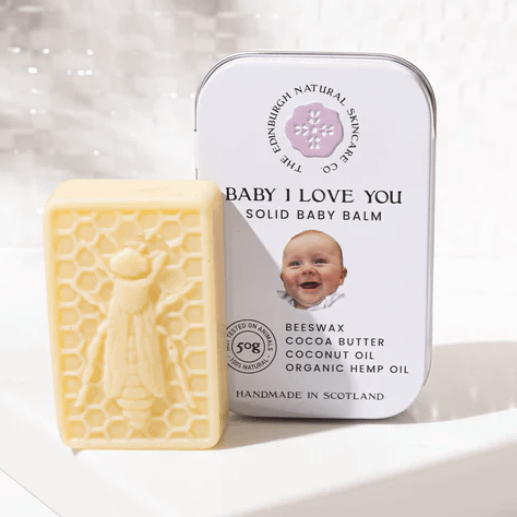Hypoallergenic: What It Means and Why It’s Important
Hypoallergenic products minimise the risk of allergic reactions and skin irritation by excluding common allergens such as fragrances, dyes, and harsh chemicals. Manufacturers specifically design these products to be gentle and non-irritating, promoting skin safety and comfort. These formulations aim to reduce the likelihood of rashes or other allergic responses, prioritising gentleness on sensitive skin in their development.
Conversely, non-hypoallergenic products may have allergens like fragrances, dyes, or harsh chemicals, which may irritate sensitive individuals, particularly infants with sensitive skin.
Using hypoallergenic products for babies is important because their immune systems and skin barriers are still developing. Exposing them to potential allergens or irritants can lead to discomfort, rashes, or even more severe reactions. Choosing hypoallergenic products helps minimize these risks and keeps the baby’s skin healthy and comfortable.
The Sensitive Skin and Immune Systems of Babies
Babies have incredibly delicate and permeable skin compared to adults. Their skin barrier is much thinner, allowing irritants, chemicals, and allergens to penetrate more easily. This heightened permeability makes babies more susceptible to skin irritations, rashes, and allergic reactions from products containing harsh ingredients.
Moreover, babies’ immune systems are still developing and immature. Their bodies have not yet built-up defenses against many allergens and irritants found in everyday products. Using hypoallergenic products minimizes the risk of triggering an adverse immune response or exacerbating conditions like eczema or cradle cap.
What Ingredients in Baby Products Can Cause Allergic Reactions?
Many conventional baby products contain harsh chemicals, fragrances, dyes, preservatives, and surfactants that can irritate a baby’s delicate skin and potentially trigger allergic reactions.
Typical allergens present in non-hypoallergenic baby products include:
Fragrances: Artificial fragrances are a major culprit for skin irritation and allergic reactions. Even fragrances derived from natural sources can cause problems for some babies.
Preservatives: Although they lengthen product shelf life, preservatives such parabens, formaldehyde, and quaternium compounds can result in respiratory problems, eczema, and skin rashes.
Surfactants: Harsh surfactants like sodium lauryl sulfate (SLS) and sodium laureth sulfate (SLES) are found in many baby shampoos and body washes. These can strip away natural oils and cause dryness, irritation, and allergic flare-ups.
Phthalates: This group of chemicals used to increase product flexibility and durability has been linked to asthma, eczema, and other allergic conditions.
Understanding Hypoallergenic Baby Products
Babies’ delicate and sensitive skin makes them more prone to allergic reactions and irritations, emphasizing the importance of using hypoallergenic products to protect their overall well-being. Here’s what you need to know:
Reading Labels: Always read the labels carefully. Look for products labeled as “hypoallergenic,” “fragrance-free,” or “dye-free.” These products are formulated without common allergens and harsh chemicals that can cause reactions.
Avoiding Harsh Ingredients: Steer clear of products containing harsh ingredients like parabens, phthalates, sulfates, and synthetic fragrances. These substances can trigger allergic reactions, skin irritations, and even disrupt hormone levels in babies.
Considering Product Reviews and Recommendations: Before purchasing a product, research and read reviews from other parents. Look for products that have received positive feedback for being gentle and non-irritating on babies’ skin. Additionally, consult with your pediatrician or dermatologist for personalized recommendations based on your baby’s specific needs.
In Conclusion
Regular use of hypoallergenic product helps strengthen the skin barrier and maintain moisture levels, crucial for preventing dryness and discomfort. Ultimately, giving preference to hypoallergenic goods benefits a baby’s delicate skin’s general health and comfort, fostering a happier and healthier infancy.
Check out: Baby I Love You Solid Baby Balm
